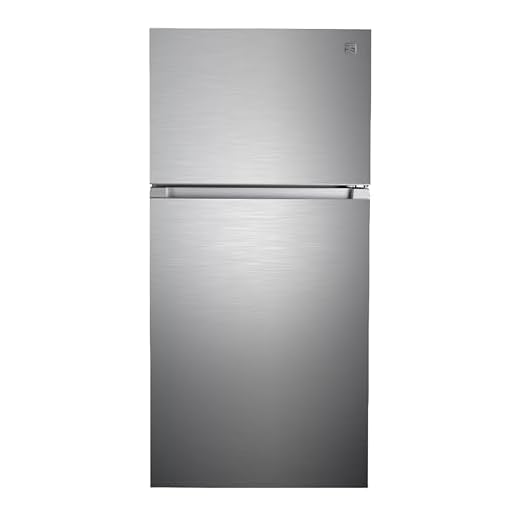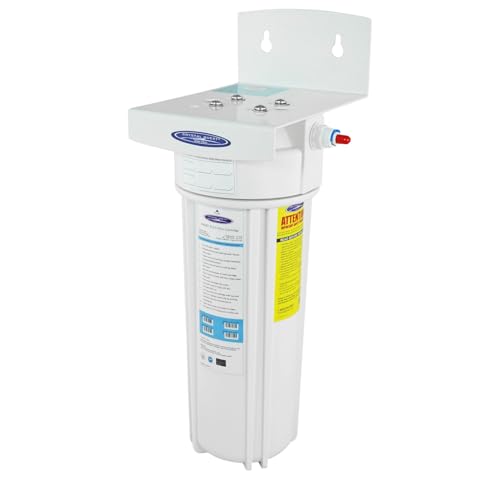



Refrigerators are an integral part of our daily lives, keeping our food fresh and preventing spoilage. However, have you ever wondered why your refrigerator seems to cycle on and off throughout the day? In this article, we will explore the reasons behind this cycling and how it helps maintain the optimal temperature inside your fridge.
One of the main reasons why refrigerators cycle on and off is to maintain a consistent temperature. The compressor, which is the heart of the refrigerator, is responsible for cooling the air inside the fridge. When the temperature inside the fridge rises above a certain point, the compressor kicks in and starts cooling the air. Once the desired temperature is reached, the compressor shuts off, allowing the fridge to maintain its coolness.
Another reason for the cycling is energy efficiency. By cycling on and off, refrigerators can save energy and reduce their impact on the environment. When the compressor is running, it consumes a significant amount of electricity. By turning off the compressor once the desired temperature is reached, the fridge consumes less energy overall. This cycling also helps to prevent the compressor from overheating, extending its lifespan and reducing the need for repairs.
Understanding the Refrigerator Cooling Cycle
A refrigerator cooling cycle is the process by which a refrigerator maintains its temperature by cycling on and off. Understanding how this cycle works can help you troubleshoot any issues with your refrigerator and ensure its optimal performance.
1. Refrigerator Components
A refrigerator cooling cycle involves several key components. These include:
- Compressor: This is the heart of the cooling cycle. It compresses the refrigerant gas, which increases its temperature and pressure.
- Condenser: The high-pressure, high-temperature refrigerant gas flows into the condenser, where it releases heat and transforms into a high-pressure liquid.
- Evaporator: The high-pressure liquid refrigerant passes through the expansion valve or capillary tube, which reduces its pressure and temperature. It then enters the evaporator, where it absorbs heat from the refrigerator’s interior.
- Thermostat: The thermostat monitors the temperature inside the refrigerator and signals the compressor to turn on or off based on the desired temperature setting.
2. Cooling Cycle Process
The cooling cycle begins when the thermostat detects that the refrigerator’s temperature has risen above the desired setting. The compressor is activated, and it starts compressing the refrigerant gas, which increases its temperature and pressure. The hot, high-pressure gas then flows into the condenser.
In the condenser, the high-pressure gas releases heat to the surrounding environment, causing it to cool and transform into a high-pressure liquid. The liquid refrigerant then enters the evaporator through the expansion valve or capillary tube.
Inside the evaporator, the high-pressure liquid refrigerant experiences a significant pressure drop, which causes it to evaporate and absorb heat from the refrigerator’s interior. This evaporation process cools down the refrigerator’s interior.
The now low-pressure and low-temperature refrigerant gas returns to the compressor, and the cycle continues. Once the desired temperature inside the refrigerator is reached, the thermostat signals the compressor to turn off, temporarily stopping the cooling cycle.
3. Cycling Frequency
The cycling frequency of a refrigerator depends on various factors, including the ambient temperature, refrigerator load, and efficiency of the components. A well-insulated refrigerator with a smaller load and located in a cool environment may cycle less frequently compared to a refrigerator under heavy load in a warm environment.
| Factors Affecting Cycling Frequency | Effect on Cycling Frequency |
|---|---|
| Room temperature | A warmer room temperature may increase cycling frequency. |
| Refrigerator insulation | Better insulation may reduce cycling frequency. |
| Refrigerator load | A heavier load may increase cycling frequency. |
| Refrigerator efficiency | A more efficient refrigerator may cycle less frequently. |
It’s important to note that occasional cycling on and off is normal for a functioning refrigerator. However, if you notice excessive cycling or if the refrigerator is not maintaining the desired temperature, it may indicate a problem that requires professional attention.
Common Reasons for Refrigerator Cycling On and Off
Refrigerators play a crucial role in our daily lives by keeping our food fresh and edible. However, if you notice that your refrigerator is constantly cycling on and off, it may be a cause for concern. This issue can lead to increased energy consumption, decreased efficiency, and potentially expensive repairs. Here are some common reasons why your refrigerator may be cycling on and off:
- Dirty Condenser Coils: Over time, the condenser coils located at the back of your refrigerator can become covered in dust, dirt, and debris. When these coils are clogged, it can cause the refrigerator to overheat, leading to frequent cycling on and off.
- Faulty Thermostat: The thermostat regulates the temperature inside the refrigerator. If it becomes faulty, it may not accurately gauge the temperature, causing the refrigerator to cycle on and off unnecessarily.
- Defective Start Relay: The start relay is responsible for initiating the compressor’s operation. If it is defective, it can cause the refrigerator to cycle on and off frequently as the compressor struggles to start.
- Overloading: Placing too many items in the refrigerator can obstruct the airflow, making it difficult for the appliance to maintain a consistent temperature. As a result, the refrigerator may cycle on and off more frequently as it tries to compensate.
- Thermostat Placement: If the thermostat is located near a heat source, such as an oven or direct sunlight, it can lead to inaccurate temperature readings. This can cause the refrigerator to cycle on and off unnecessarily.
If you experience frequent cycling on and off with your refrigerator, it is recommended to consult a professional technician to diagnose and address the issue. Regular maintenance, such as cleaning the condenser coils and ensuring proper airflow, can also help prevent this problem from occurring. By addressing these common reasons, you can ensure that your refrigerator operates efficiently and reliably.
Effects of Excessive Refrigerator Cycling
When a refrigerator cycles on and off too frequently, it can have several negative effects on both the appliance’s performance and energy consumption.
| Effect | Description |
|---|---|
| Decreased lifespan | Excessive cycling causes additional wear and tear on the refrigerator’s mechanical components, such as the compressor and motor. This can lead to a shorter lifespan for the appliance. |
| Poor temperature control | Frequent cycling can result in inconsistent temperature control inside the refrigerator. The constant stopping and starting of the cooling cycle can lead to temperature fluctuations, which can affect the quality and safety of the stored food. |
| Increased energy consumption | Refrigerators are designed to operate most efficiently when they run for longer periods of time at a steady rate. Excessive cycling disrupts this optimal energy usage and can lead to increased energy consumption, resulting in higher electricity costs. |
| Noise and vibrations | When a refrigerator cycles on and off frequently, it can produce more noise and vibrations. This can be annoying for users and may also indicate an issue with the appliance’s internal components. |
To prevent excessive refrigerator cycling and its negative effects, it is important to properly maintain the appliance. Regular cleaning, checking the door seals for leaks, and avoiding overloading the refrigerator can help improve its performance and reduce the frequency of cycling. If the cycling persists or becomes more frequent, it may be necessary to consult a professional technician to diagnose and resolve any underlying issues.
Tips to Reduce Excessive Refrigerator Cycling
While it is normal for a refrigerator to cycle on and off in order to maintain the desired temperature, excessive cycling can be a sign of inefficiency and can lead to increased energy consumption. Here are some tips to help reduce excessive refrigerator cycling:
1. Check the Door Seals
Make sure that the door seals of your refrigerator are in good condition and create a tight seal when closed. Damaged or worn-out seals can cause cold air to escape, forcing the refrigerator to work harder to maintain the desired temperature.
2. Organize the Contents
Properly organizing the contents of your refrigerator can help reduce the need for the appliance to cycle on and off frequently. Avoid overcrowding the shelves and make sure there is enough space between items for adequate air circulation.
3. Temperature Setting
Check the temperature setting of your refrigerator and ensure that it is set at the optimal level. Setting the temperature too low can cause the refrigerator to cycle on and off more frequently than necessary.
4. Keep the Coils Clean
The condenser coils of your refrigerator are responsible for releasing heat. Dirty or dusty coils can hinder the heat dissipation process, causing the refrigerator to work harder and cycle on and off more frequently. Regularly clean the coils to maintain optimal performance.
5. Allow for Ventilation
Ensure that there is adequate ventilation around your refrigerator. Avoid placing it near heat sources such as ovens or radiators, as this can cause the appliance to work harder and cycle on and off more frequently.
6. Avoid Placing Hot Food
Avoid placing hot food directly into the refrigerator. Allow hot food to cool down to room temperature before storing it. Placing hot food in the refrigerator can cause the appliance to cycle on and off more frequently as it works to cool down the temperature.
By following these tips, you can help reduce excessive refrigerator cycling and improve energy efficiency.
When to Seek Professional Help for Refrigerator Cycling Issues
If you notice that your refrigerator is cycling on and off more frequently than usual, it may be a sign of an underlying issue. While some cycling is normal, an excessive amount can indicate a problem. Here are a few signs that it may be time to call a professional for help:
1. Temperature Fluctuations
If you find that the temperature inside your refrigerator is constantly changing, even when the cycling seems normal, it could be a sign of a malfunctioning thermostat or other components. A professional technician can diagnose the issue and make the necessary repairs to ensure consistent temperature control.
2. Unusual Noises or Sounds
If your refrigerator is making loud or unusual noises during the cycling process, it’s worth seeking professional help. These noises could indicate a problem with the compressor, motor, or other internal components that may require attention from a trained technician.
It’s important to note that attempting to fix these issues yourself can be dangerous and may void any existing warranties on your refrigerator. A professional technician has the knowledge and experience to safely diagnose and repair any problems, ensuring the long-term performance and reliability of your appliance.
By seeking professional help at the first signs of excessive cycling, you can avoid more significant issues down the line. Don’t hesitate to reach out to a reputable refrigerator repair service to discuss your concerns and schedule an appointment.
FAQ
Why does my refrigerator cycle off and on?
Refrigerators cycle off and on to maintain the desired temperature inside the unit. When the temperature inside the refrigerator rises above a certain level, the compressor turns on to cool it down. Once the temperature reaches the desired level, the compressor cycles off.
How often should a refrigerator cycle on and off?
The frequency at which a refrigerator cycles on and off depends on several factors such as the temperature setting, the ambient temperature, and the amount of food stored inside. On average, a refrigerator might cycle on and off every 30 minutes to an hour.
Is it normal for a refrigerator to cycle on and off frequently?
While it is normal for a refrigerator to cycle on and off throughout the day to maintain the desired temperature, frequent cycling can indicate an issue. If you notice that your refrigerator is cycling on and off more frequently than usual, it could be a sign of a faulty thermostat, dirty condenser coils, or poor insulation.










